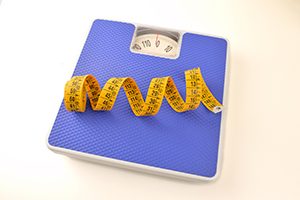Lipodystrophy Treatment in Seffner, FL

If you're having irregular periods and growing excessive body hair, or diabetes you may have inherited lipodystrophy, an extremely rare genetic disorder that causes low body fat.
While this condition isn't a medical emergency or typically fatal, getting lipodystrophy diagnosed or ruled out is important to begin creating a treatment plan. To speak with a lipodystrophy specialist today in Seffner, call (813) 536-3212 or contact Dr. Christopher Van Benschoten online.
What Are the Symptoms of Lipodystrophy?
Lipodystrophy is a leptin deficiency - that's the hormone that tells your body you've eaten enough and to start creating insulin.
Lipodystrophy can also cause fat buildup in inappropriate places, like your heart, kidneys, liver, and pancreas. It can cause diabetes, high cholesterol and triglycerides, and fatty liver disease .
Types of Lipodystrophy
Each type of lipodystrophy presents its own symptoms that vary with the severity of the patient's case.
Congenital generalized lipodystrophy (CGL)
GCL appears at birth. It's typically easy to identify because affected babies have almost no body fat and makes them appear muscular. They grow very fast and eat a lot, and their skin may be dark and velvety, especially around their neck, armpits, and where their legs meet their abdomen. Infants also usually develop an enlarged liver, while older children have problems controlling blood sugar and triglycerides. Some children develop learning disorders.
Adults with CGL have large hands and feet and square jawbones, because their hormones are unbalanced and they continue growing. Women may have irregular or absent periods, polycystic ovary syndrome (PCOS) , and have extra body hair.
Familial partial lipodystrophy (FPL)
FPL typically begins showing symptoms around puberty. Children lose body fat from their arms, legs, and abdomen while gaining fat in their chin, face, and neck. Their skin gets dark, velvety folds. Insulin resistance and liver enlargement is also common.
In women, FPL gives a muscular appearance. About one in four women have excess body hair, PCOS, and irregular or absent periods. They're also more likely to experience complications like diabetes, high triglycerides and cholesterol, and heart disease.
What Causes Lipodystrophy?
Lipodystrophy is a very rare, inherited, genetic condition, with a prevalence of about one to five cases/million.1 Research shows that one gene from a parent can cause it, or one gene from each parent can also cause it. Some people inherit these genes but show no symptoms. Research into this condition is ongoing.
How Is Lipodystrophy Diagnosed?
First, your physician will perform a full physical examination and discuss your medical history or your child's medical history. Then tests will usually be performed to diagnose or rule out lipodystrophy.
These include:
- MRI: to show tissues and fat content
- blood tests : to check blood sugar, kidney health, fats, liver enzymes, and uric acid
- urine tests: to check for kidney problems
- x-rays: to show bone problems and bone mineral density
- skin biopsy: to check for skin condition
- genetic testing: to locate exact problem genes and pinpoint what type of lipodystrophy you or your child have
Your physician may also look for fat loss patterns to determine skin fold thickness.
How Is Lipodystrophy Treated?
Since missing body fat can't be replaced, lipodystrophy can't be cured. Symptoms are managed with healthy lifestyle choices like:
- eating a low-fat diet: especially omega-3 fatty acids, which help control cholesterol and triglycerides
- exercising: physical activity lowers your blood sugar and prevents fat buildup
- metreleptin injections: these replace missing leptin and helps prevent other diseases; side effects can include headache, weight loss, and stomach pain
- managing diabetes symptoms (if you or your child is diabetic)
Cosmetic surgery may help improve your appearance. Side effects include nerve damage, infection, scaring, organ damage, and pockets of blood that resemble large, painful bruises (hematoma).
Hormone therapy options include human growth hormone (HGH) and leptin supplementation. Egrifta is a synthetic drug that causes the body to create HGH and reduce fat. It was approved by the Food and Drug Administration (FDA) for HIV-related lipodystrophy in 2010, and side effects can include joint or muscle aches, hand or feet swelling due to excess water, and increased blood sugar levels. Myalept is an FDA-approved treatment for lipodystrophy that uses the hormone leptin to suppress appetite and increase fat-burning. Side effects include headache, low blood sugar, and abdominal pain.
You should avoid birth control pills or hormone replacement therapy for menopause, as these can increase fat levels. Call your physician if you develop an infection or experience symptoms like low blood sugar or worsening lipodystrophy symptoms after undergoing metreleptin injections.
Self-esteem challenges related to you or your child's appearance may negatively impact your life. If you or your child is facing challenges like depression, anxiety, anger, or insomnia, consider speaking with a professional therapist or counselor.
Reserve Your Appointment Now
Lipodystrophy is a very challenging disorder. Thankfully, it doesn't have to control your life. There are many options available to help you manage lipodystrophy and improve the quality of life for you or your child.
To speak with a lipodystrophy specialist today in Seffner, call (813) 536-3212 or contact Dr. Christopher Van Benschoten online.
Evolution
Address
4691 Van Dyke RoadLutz, FL 33558
(813) 536-3212
www.evolution4health.com
Hours
Mon:
10:00 am - 4:00 pm
Tue:
10:00 am - 4:00 pm
Wed:
10:00 am - 5:00 pm
Thu:
10:00 am - 6:00 pm
Fri:
10:00 am - 3:00 pm
Sat:
Closed
Sun:
Closed


